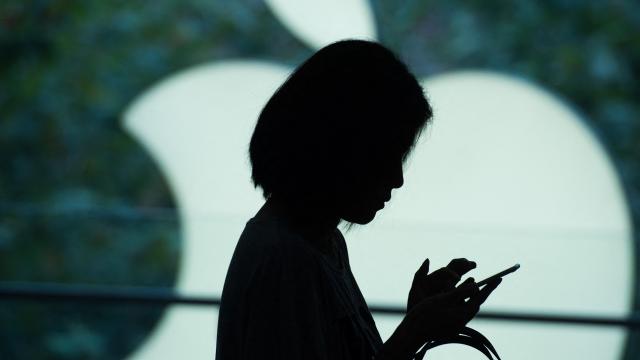New changes to Apple’s AirDrop file-sharing tool in China could make it more difficult for political dissidents or protesters to share information critical of the government. The oddly timed software changes, which limit the amount of time users can AirDrop files to non-contacts, comes less than one month after protestors used the very same feature to spread images criticising government leaders.
Apple’s AirDrop change, first reported on by Bloomberg, reached users as part of the new iOS 16.1.1 update released this week. Although AirDrop typically lets iPhone users adjust their settings to allow sharing between “contacts,” or “everyone,” that latter option in China was changed to read, “Everyone for 10 minutes.” That seemingly small distinction could have far reaching consequences. Once those 10 minutes expire, users’ AirDrop setting will revert back to “contacts only” which, in theory, would make it more difficult for images or other files to quickly circulate amongst a crowd of people. Admittedly, it could also help prevent the scourge of AirDrop spammed dick pics.
Apple limits AirDrop in China after its use in protests https://t.co/W71YBWwQwz pic.twitter.com/huT0E4aa1T
— The Verge (@verge) November 10, 2022
Apple did not respond to Gizmodo’s request for comment but told Bloomberg it plans to expand the 10-minute sharing option to other markets eventually. Even if that’s true, the timing isn’t great. The sharing changes come just weeks after Chinese protests drew the ire of the Chinese government by using AirDrops to share critical photos opposing President Xi Jinping.
Apple’s drawn increased scrutiny in recent years for its, let’s just call it “complicated” relationship with China. Though the company’s brand and identity outside of the country hinge on strong commitments to privacy, critics worry those same values often fall flat in China, which is both the company’s single largest manufacturer and, increasingly, one of its largest consumer markets.
A New York Times investigation last year accused Apple of giving in to government calls to hold Chinese consumer data on Chinese servers, and of collaborating in censoring certain apps. Similarly, Apple has notoriously refrained from releasing certain privacy-focused features in the country, such as its “Private Relay” encrypted browsing service.
On the business side, China’s tense geopolitical relationship with the U.S. and strict COVID-19 containment philosophies are also having an effect on Apple. A recent COVID-19 outbreak in a Zhengzhou Foxconn factory forced officials to issue a seven-day lockdown. That lockdown halted iPhone production, so much so that the company revealed it’s expecting shipment disruption for the upcoming holiday shopping season.
